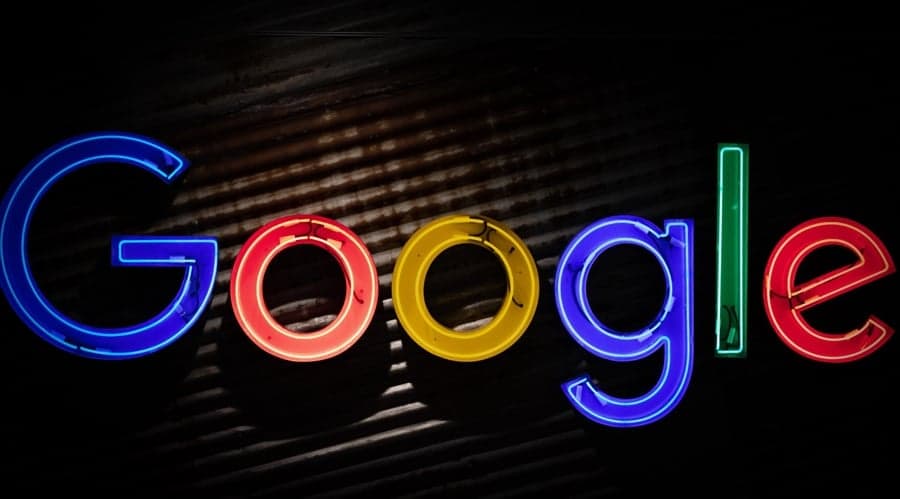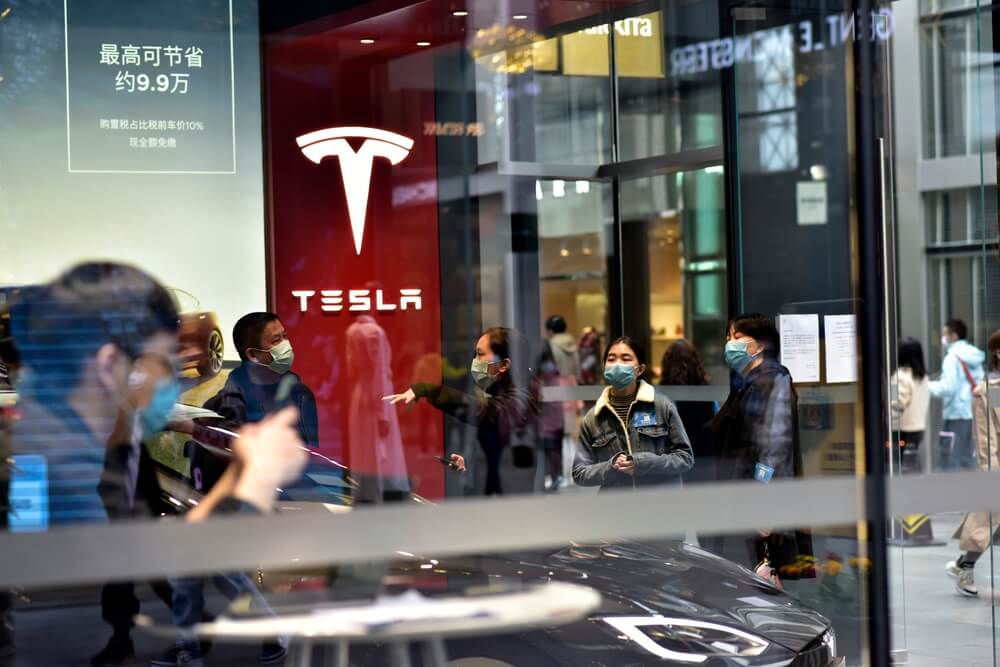Loading...
Stocks
Latest in Stocks

The Energy Squeeze: How a Fall Oil Tightening Could Nick S&P 500 Margins
Why this matters? Markets are still debating AI winners and the odds of a soft landing. Meanwhile, the line items CFOs can’t ignore—fuel, freight, feedstocks, and…

August Stock Market Analysis: Earnings Momentum and Technical Tailwinds Point to New Highs, But Ripples Loom
Overview Table of Contents WallStreet feels remarkable upbeat as we crossover in to August 2025, lead by an earnings season that posted a fifth straight quarter…

Wall Street’s Reluctant Rally: How Big Tech and AI Keep Driving Stocks Higher
Table of Contents Risk Disclaimer The information on this page is provided for general information only and does not constitute investment, tax or legal advice. Trading…

Alphabet Inc. is in the Eye of the AI Storm; Employee Buyouts and Gemini Roll-Out
Weathering the storm Table of Contents Alphabet Inc. (NASDAQ; GOOG) is currently facing key questions as AI reshapes the global economy: Can link-based search weather answer-style…

Bank of America, JP Morgan, Citigroup Stock Forecasts Through 2026
The Big 3 Table of Contents America’s three money-center giants—Bank of America (BAC), JP Morgan (JPM), and Citigroup (C)—remain the bellwethers for Wall Street and Main…

Extra Space Storage (EXR) Higher? Analysts Eye $165 Price Target Amid Stellar Q1 2025 Performance
Table of Contents Extra Space Storage Inc. (NYSE: EXR) is currently trading around $150. It is slightly below its 52-week average. However, various market analysts suggest…

Apple Stock Outlook: Strategic Shifts, Risks, and Recovery
Table of Contents As of May 15, 2025, Apple Inc.’s stock price is $211.45. This represents a notable year-to-date decline of 24 percent. This downturn is…

Tesla Market Share Challenges in 2025
Table of Contents Tesla didn’t invent the electric vehicle—but it made it desirable. Fast forward to 2025, and the company that once defined the EV category…

McDonald’s Reigns Supreme: Investor Value, Analysts Forecasts and Global Market Impact
Table of Contents McDonald’s is the world’s largest fast-food restaurant chain. It has kept this title through smart planning and new ideas. The company has big…

Why Walmart (WMT) Is Still the King of Retail: Growth Engines and Investor Outlook
The Retail Giant Walmart Inc. (WMT) is the leading retailer worldwide. It demonstrates a remarkable ability to adapt and succeed in the fast-changing retail environment. This…

Is Amazon Still a Buy? 2025 Outlook amid Tariffs and AI Investment
Table of Contents As of May 2025, Amazon (AMZN) is trading for more than $150.00 per share. This shows its strong market presence and investor trust.…

Nvidia $2.6 Trillion Power Play: Financials, Forecasts, and the Future of AI Chips
Table of Contents As of May 2025, Nvidia’s stock is trading above $100.00 per share, with analysts forecasts of north of $150.00 to as high as…

Ford Faces $1.5 Billion Tariff Blow, Pulls 2025 Guidance Amid Trump Trade Policy
Ford Motor Company has pulled back its financial guidance for 2025. They expect a $1.5 billion drop in adjusted earnings before interest and taxes. This is…

Pfizer Navigating Post-Pandemic Challenges, Struggles in 2025
Pfizer is going through a big change. They are still trying to recover from the post-pandemic market. This is happening as COVID-19 revenues decline. Its stock…

Nike’s Next Chapter: Can Swoosh Reclaim its Mojo in the second half of 2025?
As of May 5, 2025, Nike’s (NKE) stock is down from its 52-week high of $98.04. It is now at $58.59, showing a drop of more…

Will Tesla’s volatility Fuel the Next Bull Run?
Tesla Inc. (TSLA) continues to be the main focus of the financial markets as we look to close the second quarter of 2025. The company plays…

Coca-Cola Resilience and Reinvention through Second Quarter of 2025
Through the first half of 2025, The Coca-Cola Company has demonstrated the ability to adapt and remain resilience. This demonstration was seen in light of geopolitical…

The Energy Squeeze: How a Fall Oil Tightening Could Nick S&P 500 Margins
Why this matters? Markets are still debating AI winners and the odds of a soft landing. Meanwhile, the line items CFOs can’t ignore—fuel, freight, feedstocks, and…

August Stock Market Analysis: Earnings Momentum and Technical Tailwinds Point to New Highs, But Ripples Loom
Overview Table of Contents WallStreet feels remarkable upbeat as we crossover in to August 2025, lead by an earnings season that posted a fifth straight quarter…

Wall Street’s Reluctant Rally: How Big Tech and AI Keep Driving Stocks Higher
Table of Contents Risk Disclaimer The information on this page is provided for general information only and does not constitute investment, tax or legal advice. Trading…

Alphabet Inc. is in the Eye of the AI Storm; Employee Buyouts and Gemini Roll-Out
Weathering the storm Table of Contents Alphabet Inc. (NASDAQ; GOOG) is currently facing key questions as AI reshapes the global economy: Can link-based search weather answer-style…

Bank of America, JP Morgan, Citigroup Stock Forecasts Through 2026
The Big 3 Table of Contents America’s three money-center giants—Bank of America (BAC), JP Morgan (JPM), and Citigroup (C)—remain the bellwethers for Wall Street and Main…

Extra Space Storage (EXR) Higher? Analysts Eye $165 Price Target Amid Stellar Q1 2025 Performance
Table of Contents Extra Space Storage Inc. (NYSE: EXR) is currently trading around $150. It is slightly below its 52-week average. However, various market analysts suggest…

Apple Stock Outlook: Strategic Shifts, Risks, and Recovery
Table of Contents As of May 15, 2025, Apple Inc.’s stock price is $211.45. This represents a notable year-to-date decline of 24 percent. This downturn is…

Tesla Market Share Challenges in 2025
Table of Contents Tesla didn’t invent the electric vehicle—but it made it desirable. Fast forward to 2025, and the company that once defined the EV category…

McDonald’s Reigns Supreme: Investor Value, Analysts Forecasts and Global Market Impact
Table of Contents McDonald’s is the world’s largest fast-food restaurant chain. It has kept this title through smart planning and new ideas. The company has big…

Why Walmart (WMT) Is Still the King of Retail: Growth Engines and Investor Outlook
The Retail Giant Walmart Inc. (WMT) is the leading retailer worldwide. It demonstrates a remarkable ability to adapt and succeed in the fast-changing retail environment. This…

Is Amazon Still a Buy? 2025 Outlook amid Tariffs and AI Investment
Table of Contents As of May 2025, Amazon (AMZN) is trading for more than $150.00 per share. This shows its strong market presence and investor trust.…

Nvidia $2.6 Trillion Power Play: Financials, Forecasts, and the Future of AI Chips
Table of Contents As of May 2025, Nvidia’s stock is trading above $100.00 per share, with analysts forecasts of north of $150.00 to as high as…

Ford Faces $1.5 Billion Tariff Blow, Pulls 2025 Guidance Amid Trump Trade Policy
Ford Motor Company has pulled back its financial guidance for 2025. They expect a $1.5 billion drop in adjusted earnings before interest and taxes. This is…

Pfizer Navigating Post-Pandemic Challenges, Struggles in 2025
Pfizer is going through a big change. They are still trying to recover from the post-pandemic market. This is happening as COVID-19 revenues decline. Its stock…

Nike’s Next Chapter: Can Swoosh Reclaim its Mojo in the second half of 2025?
As of May 5, 2025, Nike’s (NKE) stock is down from its 52-week high of $98.04. It is now at $58.59, showing a drop of more…

Will Tesla’s volatility Fuel the Next Bull Run?
Tesla Inc. (TSLA) continues to be the main focus of the financial markets as we look to close the second quarter of 2025. The company plays…

Coca-Cola Resilience and Reinvention through Second Quarter of 2025
Through the first half of 2025, The Coca-Cola Company has demonstrated the ability to adapt and remain resilience. This demonstration was seen in light of geopolitical…





